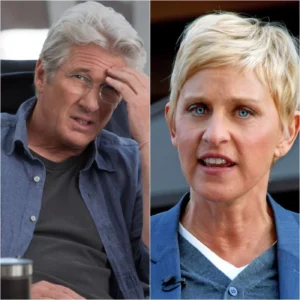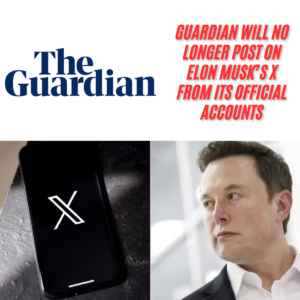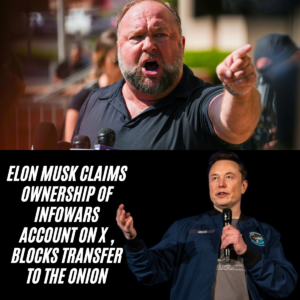 When Richard Nixon resigned and left the White House in August 1974, it wasn’t the only unprecedented action that shook the country. For the only time in U.S. history, both an unelected president and an unelected vice president served in the nation’s highest offices.
When Richard Nixon resigned and left the White House in August 1974, it wasn’t the only unprecedented action that shook the country. For the only time in U.S. history, both an unelected president and an unelected vice president served in the nation’s highest offices.
A chain of events led to President Gerald Ford and Vice President Nelson Rockefeller in the White House. Less than a year earlier, in October 1973, with Nixon already reeling from the Watergate scandal, his vice president, Spiro Agnew resigned after pleading no contest to income tax evasion.
For most of American history, the position would have remained vacant until the next election. But passage of the 25th Amendment in 1967 called for the president to appoint a new VP, subject to confirmation by Congress.
Ford Replaces Nixon, Appoints Rockefeller
So Nixon appointed Ford, the genial House minority leader, and Congress confirmed him on December 6, 1973. After Ford replaced Nixon as president, he appointed Rockefeller, the former New York governor and multimillionaire philanthropist, as his new #2. Rockefeller was sworn in on December 19, 1974, after also winning congressional approval.
“Scholars have criticized this procedure as undemocratic, especially because it has led to the selection of two Vice Presidents without benefit of elections in the last 14 months,” the New York Times observed in a news analysis piece a few days later. “Even before Mr. Rockefeller was selected,” the story added, “there was agitation to repeal the 25th Amendment or to modify it by providing for the popular election of replacement Vice Presidents.”
For Rockefeller, a liberal Republican, the vice presidency was the ultimate consolation prize. He had run for president several times, starting in 1960, barely a year after becoming governor of New York, and again in 1964 and 1968. He held the VP job in low esteem, once remarking that he was “just not built for standby equipment.”
Still, after Agnew’s resignation, Rockefeller sought the gig before Nixon settled on Ford. When Nixon was still president, he had met with Rockefeller in the Oval Office and dismissed his own “standby equipment.” Nixon pointed to his presidential desk and said, “Can you imagine Jerry Ford sitting in this chair?”
Yet, Ford did ascend to that chair, and chose Rockefeller after considering other candidates, including George H.W. Bush, who was Republican National Chairman at the time. After the selection, Ford and Rockefeller telephoned Nixon, who told Ford he had made “a good choice” by picking “a big man for a big job,” according to White House press secretary. J. F. terHorst.
While Rockefeller and Nixon continued their chat, Ford got off the line and got on another phone to call Bush, letting him know he had selected Rockefeller. These two simultaneous phone calls included a former, present and future president (Nixon, Ford and Bush). And all four men on the calls had been or would serve as vice president.
Rockefeller had plenty of experience to justify the selection, which won plaudits from members of both parties. He had been governor of New York for 15 years, and earlier, held positions under Democratic Presidents Franklin D. Roosevelt and Harry Truman and Republican President Dwight D. Eisenhower.
Ford announced the selection in an August 20, 1974 televised address, calling Rockefeller “a good partner for me and I think a good partner for our country and the world,” while the VP nominee credited the new president for reawakening “faith and hope” for a country still reeling from Watergate.
Rockefeller, who was 68 at the time, still had presidential ambitions. As New York Times reporter Sam Roberts relayed in a December 31, 2006 article, “Not long after Mr. Ford enlisted him, Mr. Rockefeller was asked whether he had accepted the vice presidency partly as a vehicle to the White House. After persistent questioning, he answered with the exasperation of a harried commuter racing to catch the last train: ‘What do you think I’m doing here?’”
Some analysts thought the selection would help Ford in the next presidential election, by balancing the ticket.
“There was general agreement,” the New York Times observed the day after the appointment, “that the conservative new President from the Middle West had broadened his base of support and increased his chances for being elected in his own right in 1976, if he runs, by choosing a moderate Easterner with considerable influence and resources.”
Ford told Rockefeller he’d be a “full partner” in the White House. But neither that, nor Rockefeller’s contribution to the ’76 ticket, turned out as planned.
Ford Drops Rockefeller From 1976 Ticket
Two young White House staffers who would go on to play dominant roles in Republican politics—chief of staff Donald Rumsfeld, and his deputy, Dick Cheney—distrusted Rockefeller’s progressive views, and had him effectively sidelined. Rockefeller was so isolated that he griped his job amounted to attending funerals and earthquakes.
But the duo didn’t stop there. When Ronald Reagan ran an insurgent primary against Ford from the right, Rumsfeld and Cheney convinced Ford to dump Rockefeller from the ticket to appease conservatives. The day after telling him he needed to step down, Ford denied federal aid to a teetering New York City, inspiring the famous New York Daily News headline, “FORD TO CITY: DROP DEAD.” Rockefeller, the former governor of New York, had supported the aid. Bob Dole replaced Rockefeller on the ticket.
Rockefeller was a victim of a changing GOP, where liberal Republicans weren’t really welcome anymore.
Ford later regretted pushing Rockefeller overboard. “I was angry at myself for showing cowardice in not saying to the ultraconservatives, ‘It’s going to be Ford and Rockefeller, whatever the consequences,’” he said. “It was the biggest political mistake of my life,” Ford said at another time. “And it was one of the few cowardly things I did in my life.”
Rockefeller wound up on the job for only about two years. Ford’s presidency lasted just a few months longer, ended by his defeat to Democrat Jimmy Carter in 1976.
To this day, Rockefeller holds a unique spot in American political history: the only person ever nominated to fill a vice presidential vacancy, and the last VP dropped from a ticket. Ford remains the only president never elected to national office.



